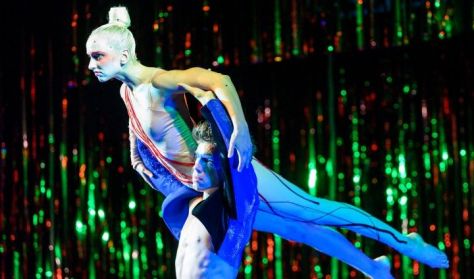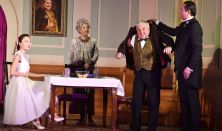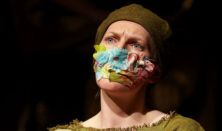Shakespeare’s enigmatic play abounds in ambiguous situations, which can only be seen as sad or cheerful depending on your point of view. A brilliant theatrical mind, Shakespeare is not only a great poet but also knows everything there is to know about human nature. He sees our lives as at once beautiful and ugly, poetic and vulgar, dramatic and comic, sublime and petty, pitiful and ridiculous. He depicts humans and fairies, squabbling princes and striving craftsmen, happy and unhappy lovers, lonely elves and tangled couples, showing their current sorrows and joys. One thing they all have in common is that they are all seeking happiness in the Athenian forest on this magical midsummer night. Some succeed, others less so. But they never give up – they search for happiness as long as they can. Often they find themselves in ridiculous situations, which of course they see as tragic until a new morning dawns, and in broad daylight every success and failure shows a different face from the one it did in the dark of night. The troubles are no longer so dramatic, the problems are no longer so insoluble, and they can once again take heart from themselves and each other. But most of all, we can laugh with the characters at ourselves, because they are really us, and we realise that the point is, “Life is beautiful... Do I need to explain?”
Performed by Kecskemét City Balett
Puck - Nikolett Nagy
Demetrius, suitor to Hermia - MIlán Földesi
Heléna,in love with Demetrius - Laura Gömöri
Lysander, in love with Hermia - László Pavleszek
Hermia, daughter of Egeus, in love with Lysander - Jusztina Bakonyi
Oberon King of the Fairies - Martin Raj
Titánia tQueen of the Fairies - Lotti Varga
Theseus Duke of Athens- Norbert Szigethy
Hyppolita Queen of the Amazons - Luca Hoffmann
Zuboly - Rancz Illés
Egéus, Indian changelin: Málna Csató
Fairies: Tícia Szonja Weisz, Mála Csató
Craftsmen - István Takács, Illés Rancz
Music: Henry Purcell
Sound: Pál Kocsis m. v.
Set - costume Designer: Ildikó Tihanyi
Light Designer and Assistants to Choreographer: Zoltán Katonka
Consultant: Attila Galambos, Tamás Szabó
Assistant Director: Szabina Murár
Directed and choreographed by Dóra Barta







